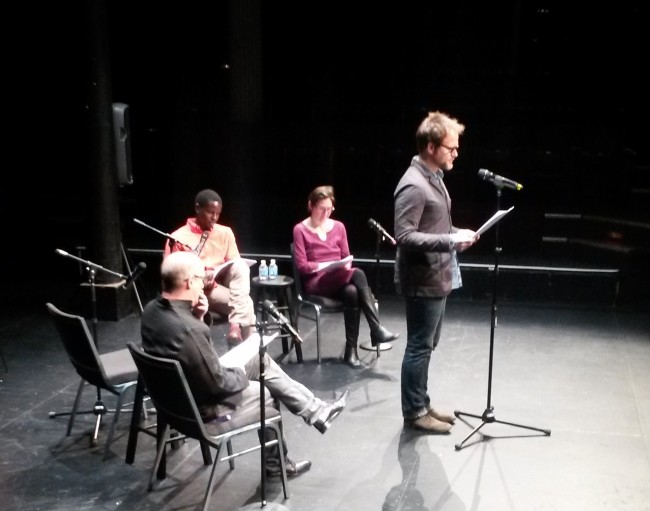I attended a lecture at Columbia University entitled Retranslating Literary Classics, and the panel of speakers included Edith Grossman, Wyatt Mason, and Richard Pevear & Larissa Volokhonsky, with Susan Bernofsky as mediator.
Some interesting quotes and points of view from the event:
Edith Grossman (recent translation of Don Quixote by Cervantes):
– Don Quixote by Cervantes gets through the armor of your heart, it’s so sad yet funny. She made it a point to express how very sad it was, but that it was also funny. She didn’t see that in previous translations, and that’s something that she wanted to make accessible to English readers.
– Translators are schizophrenic: we have to be loyal to both languages at the same time, and it’s no wonder that we’re all a little crazy.
– You don’t do translations with tracing paper- you don’t trace the original.
Richard Pevear and Larissa Volokhonsky (recent translation of Dostoevsky and Anna Karenina):
– Dostoevsky isn’t seen as being funny or a good writer in English- this is because of the previous translations. Volokhonsky especially wanted his humor to come through- she said that she would laugh when reading his work, then ask Pevear what it said in an English translation and it would have nothing of the original tone.
– Translators need to write what’s written, a problem that they’ve seen seems to be that translators stray too much from the original text.
– Repeating words is necessary sometimes. An example they gave was in the Brothers Karamazov (which they also translated), where one of the characters uses the word “perhaps” a number of times, for emphasis and then comic relief. If you translate that word differently each time (which isn’t really possible in the English language), the story doesn’t come across the same way as the author intended.
– Volokhonsky said, strongly: “If you don’t write what he [the author] says, the reader will read a different novel.”
Pause.
Pevear added, comically: “So there.”
– Every great writer is an event in language.
– The eye forgives everything, the ear forgives nothing: Read Out Loud!
Wyatt Mason (recent translation of Montaigne’s Essais, he is also a literary critic):
– As a literary critic, Mason reads the novel at least twice. Translating is more intimate, and here he included an anonymous quote about the many times more that translators read the novel they’re translating: “Proust, il faut le lire au minimum dix fois”.
– Literal vs. Liberal as a translator. Mason likes to think that he finds the middleground- he changes the syntax to fit English, yet he keeps the tone and the level of language.
Some topics that were also discussed:
– When retranslating a novel, do you read previous translations (during the first draft, during following drafts) or not at all? All of them had read previous translations of works that they had done, but they didn’t really study the other translations until after they had at least translated their own first draft of the book.
– Samuel Beckett would write in French and then translate it back into English to keep his writing from sounding like that of his former boss, James Joyce.
– Translators have the great privilege of re-writing “greats” in their own language.
– Footnotes and Endnotes: when they are appropriate and acceptable, and all of the panelists preferences. Pevear particularly likes footnotes, whereas Grossman preferred to use endnotes if using any type of reference note at all. Pevear likes to know the little details. Grossman thinks that they interrupt the reading on a page so she would do endnotes if she had to, so if the reader was especially interested they could find out for themselves.
– Original vs. translation, which is better? There was a lot of conjecture, but no clear answers. I wouldn’t want to have to answer that question, either.


